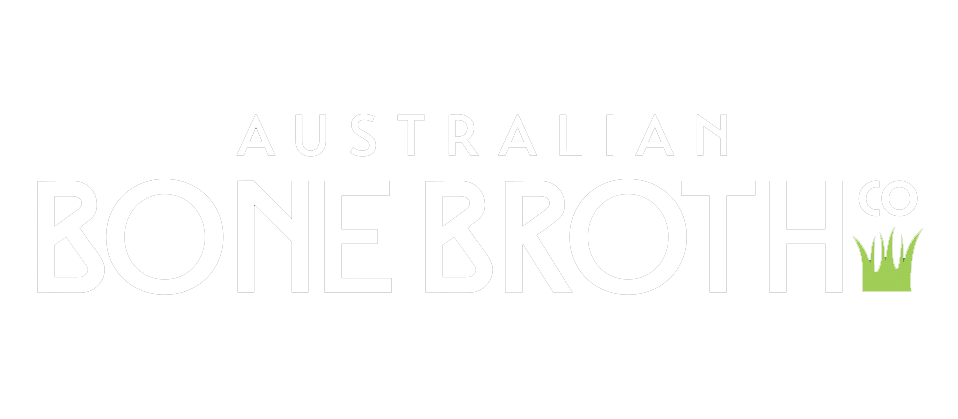Buy your weekday smoothies and get your weekend ones for free. (7 for the price of 5!)

Is Collagen Powder Safe During Pregnancy? A Guide for Moms‑to‑Be
When it comes to pregnancy, there are a lot of questions about whats safe and what’s not to put in your body. Pregnancy is a time of transformation, wonder—and often, more questions than answers. Among the many wellness trends circulating today, collagen supplementation has gained popularity for its potential skin, joint and connective tissue benefits. However, for expecting mothers, the question looms: Is collagen powder safe during pregnancy?
We aim to help you separate fact from hype, outline what the research says, highlight potential risks, and offer practical advice—especially in the context of Australian‑made collagen and bone broth products (such as those you’ll find on our site).
What Is Collagen, and Why Do People Take It?
Collagen is the most abundant natural protein in the human body. It’s a key component of skin, tendons, cartilage, bones, blood vessels, and more. As we age, natural collagen production gradually declines, which is one of the motivations behind taking collagen supplements.
People generally take collagen to support skin elasticity, reduce joint pain or stiffness, improve hair and nail strength, and support recovery or connective tissue health.
During pregnancy, the body undergoes extraordinary changes—skin stretches, joints and ligaments shift, and connective tissues adapt to support a growing uterus. Understandably, many mums‑to‑be explore whether collagen supplementation could help in those areas.
What Does the Scientific Evidence Say?
Limited Data, But No Red Flags (So Far)
Unfortunately, rigorous human clinical trials of collagen supplementation during pregnancy are scarce. The current knowledge is mostly extrapolated from general collagen safety data, animal or in vitro studies, and observational insights. Some key points:
- A review on the safety and efficacy of supplements during pregnancy notes that many nutrients studied up to moderate doses show no clear adverse effects, but it cautions that for many compounds, including peptides and proteins beyond standard nutrition, the evidence is insufficient. (PMC)
- WebMD states that for pregnancy and breastfeeding, “there isn’t enough reliable information to know if collagen peptides are safe to use when pregnant or breast‑feeding.” (WebMD)
- Some collagen reviews indicate that collagen and its derivatives generally have a high safety profile, though they also acknowledge the research gaps, especially in pregnancy, and sometimes suggest “advising against use” during pregnancy until more evidence emerges. (nmi.health)
- Biologically, collagen plays roles in the maternal‑fetal interface, extracellular matrix remodeling, and tissue integrity during gestation. It is naturally produced and active in pregnancy physiology. (PMC)
In short: there’s no strong evidence of harm at moderate collagen doses in general population studies, but also no conclusive proof of safety during pregnancy.

Potential Benefits (Hypothetical / Indirect)
While direct trials are lacking, some insight suggest possible advantages:
- Skin & stretch marks: Collagen supports skin structure and elasticity, so supplementing might help skin better adapt to stretching.
- Joint/connective tissue support: Pregnancy increases stress on joints and ligaments (especially with weight gain and hormonal laxity). Collagen might help maintain connective tissue health.
- Support for tissue repair & postpartum recovery: Good collagen status may support healing after childbirth.
However, these remain possibilities rather than proven benefits in pregnant populations.
Risks, Considerations & What to Watch Out For
Because the evidence is incomplete, safety must be considered thoughtfully. Some of the main considerations:
1. Contaminant / Purity Risks
Supplements in general may carry risks of contamination—heavy metals, impurities, microbial contamination, or adulterants. This risk is heightened during pregnancy, when you’re particularly cautious about what your body is exposed to.
- Choose only high‑quality, third‑party tested collagen products.
- Look for certificates of analysis, ingredient transparency, and clean sourcing practices.
2. Allergies & Source Sensitivities
Collagen powders are typically derived from bovine (cow), porcine (pig), fish, or marine sources. If you have allergies (e.g. fish, shellfish) or dietary restrictions, you need to check the source.
3. Mild Side Effects
In non‑pregnant studies, mild adverse effects like nausea or digestive upset have occasionally been reported. Given heightened sensitivity in pregnancy, such effects could be more noticeable. (nmi.health)
4. Unknown Long‑Term or High-Dose Effects
We simply lack long-term safety data. Very high doses of some peptides or co‑ingredients may carry unknown risks. Until more evidence is available, it’s wise to stay cautious.
Practical Recommendations for Moms‑to‑Be
If you’re considering using collagen powder during pregnancy, here are some tips to do so as safely as possible:
Featuring Our Products: Clean Collagen Peptides
If you decide (in consultation with your healthcare provider) to use collagen during pregnancy, consider our Collagen Peptide powder, which emphasizes quality, purity and local transparency:
- Classic Collagen Peptide Powder 400 g (Halal Certified) — A 100% Hydrolysed Bovine Collagen Peptide powder. Includes Types I & III collagen.
Our products are created to be flexible (neutral taste, mixable into soups, smoothies or broths) and transparent in their ingredients and sourcing. But again: even with trusted products, you should check with your healthcare provider before starting use.
Frequently Asked Questions (FAQ)
Q: Is collagen completely off-limits in pregnancy?
A: No — collagen is not universally contraindicated. Many health sources regard it as possibly safe, though the evidence is limited. (WebMD)
Q: When during pregnancy is it “safest” to start?
A: There is no established “safe trimester” backed by robust data. Some may prefer to wait until later on in the pregnancy, but again, this should be a discussion with your practitioner.
Q: Does taking collagen affect baby’s development?
A: There is no clear evidence that moderate collagen supplementation negatively affects the baby; collagen peptides are broken down into amino acids, which the body uses just like dietary proteins. But because data is lacking, conservative use is advisable.
Q: Can collagen help prevent stretch marks or postnatal sagging?
A: It may help with skin elasticity, but it’s not a guarantee. Good prenatal skincare, hydration, gradual weight gain, and muscle strengthening also play major roles.
Q: What if I’m already consuming bone broth or collagen-rich foods?
A: These natural dietary sources count toward your total protein and amino acid intake. Supplementing further may not be necessary unless there’s a clear, assessed need.
Bottom Line
- Current evidence on collagen during pregnancy is limited — there is no definitive proof of harm at moderate doses, but the absence of high-quality trials means caution is warranted.
- Quality, purity, dosage and individual health status matter heavily — choose trusted products, verify third-party testing, and always consult your obstetrician, midwife or nutritionist.
- Collagen should not substitute foundational prenatal nutrition — it’s a possible adjunct, not a replacement.
- If you proceed, start low, monitor your body, and adjust — you may find benefits, but safety and comfort always take precedence.
- Discuss with your GP or obstetrician— if collagen powder was already a part of your daily routine before pregnancy, check with your doctor if it’s safe to continue.
